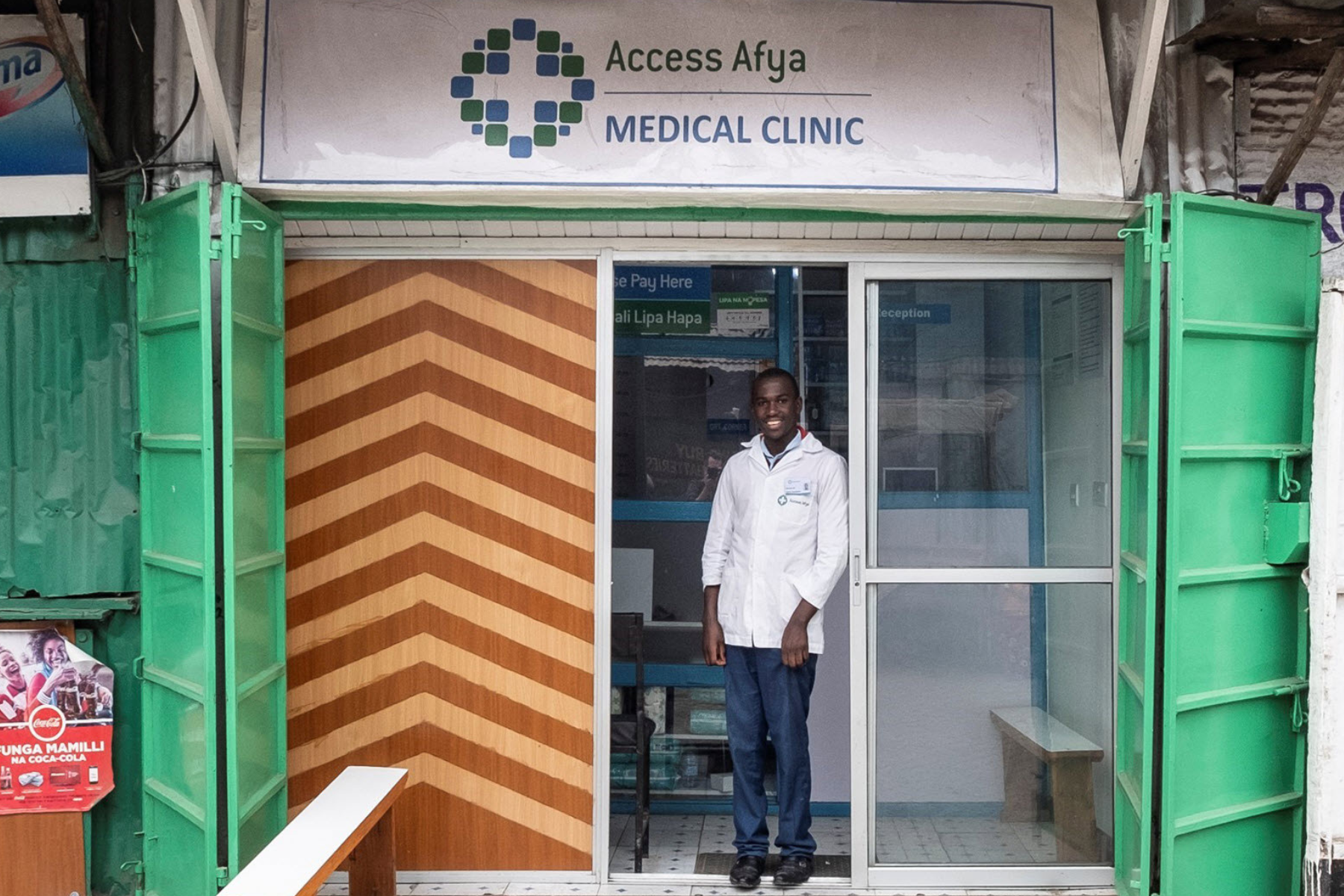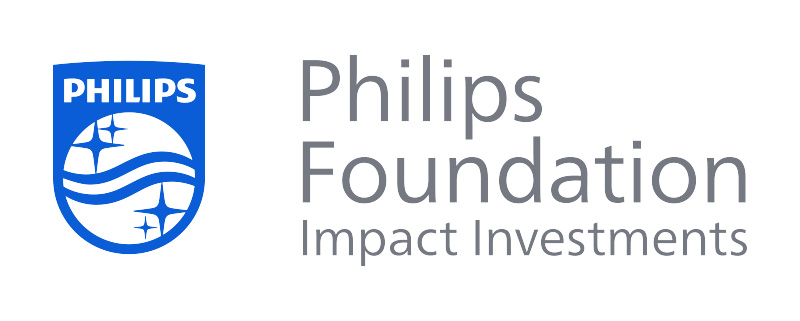Corporate Impact Investing Case Study – Philips Foundation Impact Investments B.V.

The mission of Philips Foundation is to provide access to quality healthcare to 100 million people in underserved communities a year by 2030. While the Foundation and its wholly owned subsidiary, Philips Foundation Impact Investments B.V., are independent from Philips. Philips Foundation receives an annual donation from Philips, based on which it independently operates and sets out its ambition. The Foundation also deploys the expertise, technologies, and capabilities within Philips to support its mission. Please refer to our previous publication for more details.
Organisational Profile
> Legal Structure – Social Impact Investment Vehicle
> Affiliated company – 100% Subsidiary of Philips Foundation
> Headquarters – Amsterdam, Netherlands
> Mission – Reduce healthcare inequality by providing access to quality healthcare for underserved communities worldwide
> Established in 2021
> Financial Instruments – Loans, Equity, among others
> Thematic Area – Healthcare access in underserved communities
> Geographical Focus - Worldwide

Impact Investing Approach
Which Approach & Why?
Philips Foundation works to improve healthcare accessibility in underserved communities by leveraging Philips’ healthcare innovations and expertise. In partnership with NGOs and social entrepreneurs, the Foundation develops and implements healthcare solutions tailored to the communities’ specific needs through the investment in financially viable healthcare delivery models.
Social entrepreneurs in low-resource settings often require a patient yet strategic impact investor with an entrepreneurial vision for long-term, self-sustaining, impactful scale-up. Recognising the limitations of the Foundation’s ANBI (not-for-profit) status, which prevents direct investment, and the constraints of traditional grants and donations in creating lasting change, Philips Foundation Impact Investments B.V. was established. The social impact investing vehicle provides financial support to social enterprises through early-stage and situation-specific investments, enabling them to develop sustainable and scalable healthcare solutions. Its investment structure supports initiatives with the potential to become self-sustaining, ensuring they can operate and expand without relying solely on philanthropic funding.
The Business Case
Learn about ways of improving access to care: Philips Foundation operates independently from Philips and beyond Philips’ commercial activities, engaging directly with underserved communities, allowing the Foundation to identify communities’ specific needs and, by leveraging Philips expertise, innovate or develop services and products tailored to those needs. This approach provides valuable insights on healthcare technologies that adapt or expand the mission of the Foundation to provide access to quality healthcare in low-resource settings.
Delivering on the Corporate Purpose: Philips aims to improve the health and well-being of 2.5 billion people annually by 2030, including 400 million people in underserved communities. Philips Foundation aims to provide access to quality healthcare for 100 million people in underserved communities annually by 2030. Achieving this goal requires a collective effort from global and local teams and partners. To support the Foundation’s mission Philips provides an annual contribution to Philips Foundation. Impact investing allows the Foundation to support social entrepreneurs whose work aligns with both the company’s and the Foundation’s mission, scaling quality healthcare models for underserved communities.
The Impact Case
Bridge Impact and Business: Philips Foundation Impact Investments B.V. goes beyond providing impact investments to social entrepreneurs, by leveraging Philips' resources and expertise and to address local healthcare challenges. Collaborating with local Philips teams, Philips Foundation Impact Investments B.V. taps into Philips’ network of healthcare professionals and government contacts, ensuring a deep understanding of regional needs. This approach allows Philips Foundation Impact Investments B.V. to develop tailored solutions and scale existing processes, benefiting both the business and social entrepreneurs.
Extend the Impact Strategy: Philips Foundation initially focused on traditional philanthropic activities (e.g. donations) focused on societal activities and disaster relief. Over time, the Foundation changed its mission, recognising the potential of social entrepreneurs as a powerful means to create sustainable impact. This way, the Foundation started leveraging impact investments (e.g., loans and equity investments) alongside traditional grants to support innovative solutions in line with the Foundation’s mission to provide access to healthcare in underserved communities worldwide. Focusing on social entrepreneurship allowed the Foundation to help entrepreneurs scale their business models into sustainable and financially viable models, attract broader support and sustain continuity of care for disadvantaged communities. A great example is the collaboration with Access Afya in Kenya. Rather than a traditional grant, Philips Foundation Impact Investments B.V. issued a SAFE note to support the expansion of Access Afya’s network of digital-enabled micro-clinics. These clinics bring affordable primary care directly into informal settlements, offering diagnostics, treatment, and follow-up care. The loan helped them expand their operations, while also supporting their journey toward financial independence and long-term viability.
Synergies between Impact Investing & Other Business Areas
Philanthropy: Philips Foundation Impact Investments B.V. provides loans and equity investments to support social entrepreneurs’ initiatives aligned with the Foundation’s mission. These impact investments complement the Foundation's philanthropic instruments, fostering the growth of scalable and sustainable enterprises, and enabling these enterprises to achieve financial independence, deliver on their social missions and attract further investment beyond the initial grants.
Product and Service Innovation: Philips Foundation helps to provide insights into how healthcare organisations, such as Philips, can innovate and tailor technologies to specific community needs by engaging with social entrepreneurs, gaining insights that lead to more inclusive and sustainable solutions for underserved populations. A compelling example is Philips Foundation’s collaboration with Mamotest, a social enterprise operating in Latin America that works to eliminate barriers to breast cancer screening and diagnosis. Through establishing telemammography centres in underserved areas, Mamotest enables women in remote or low-income regions to receive quality breast cancer screening and timely diagnosis – often for the first time. These centers are linked with specialised radiologists via telehealth platforms, reducing delays in care and improving outcomes.
*
“Good entrepreneurship implies looking beyond financial returns alone, and adding value for people and our planet as well. Considering the challenging socio-economic situation of underserved populations, we focus on the viability of the ventures and their envisioned impact at the same time, helping create access to medical services that people can rely on.”
- Eddine Sarroukh, Impact Investments Lead

